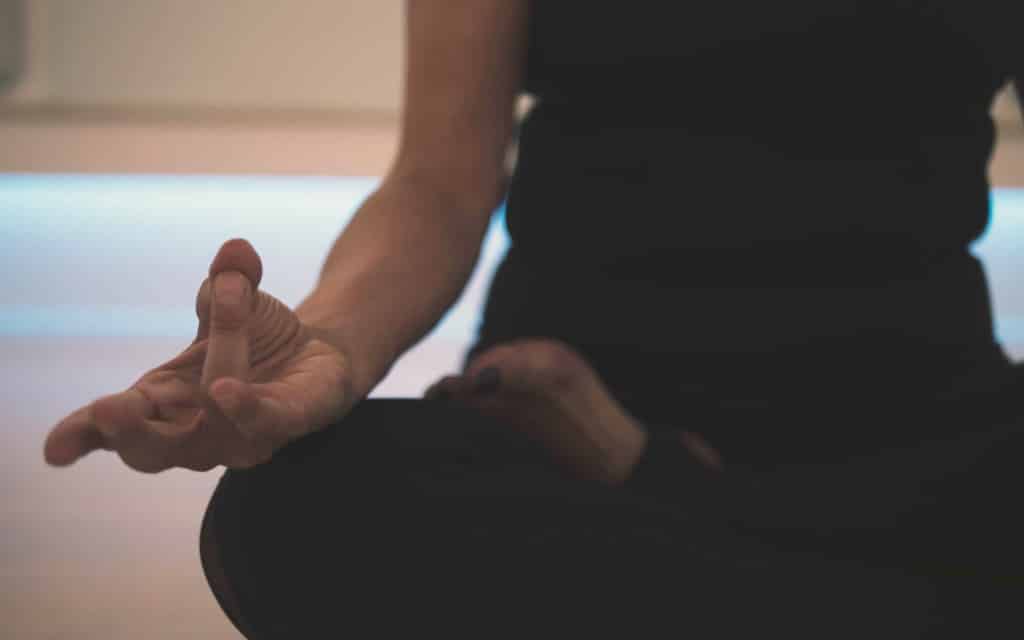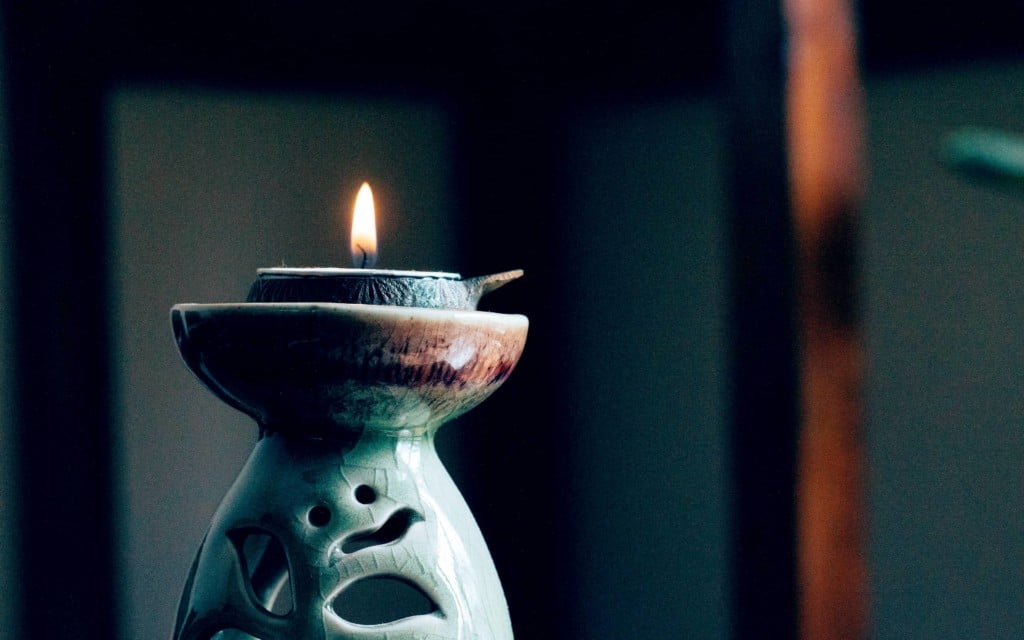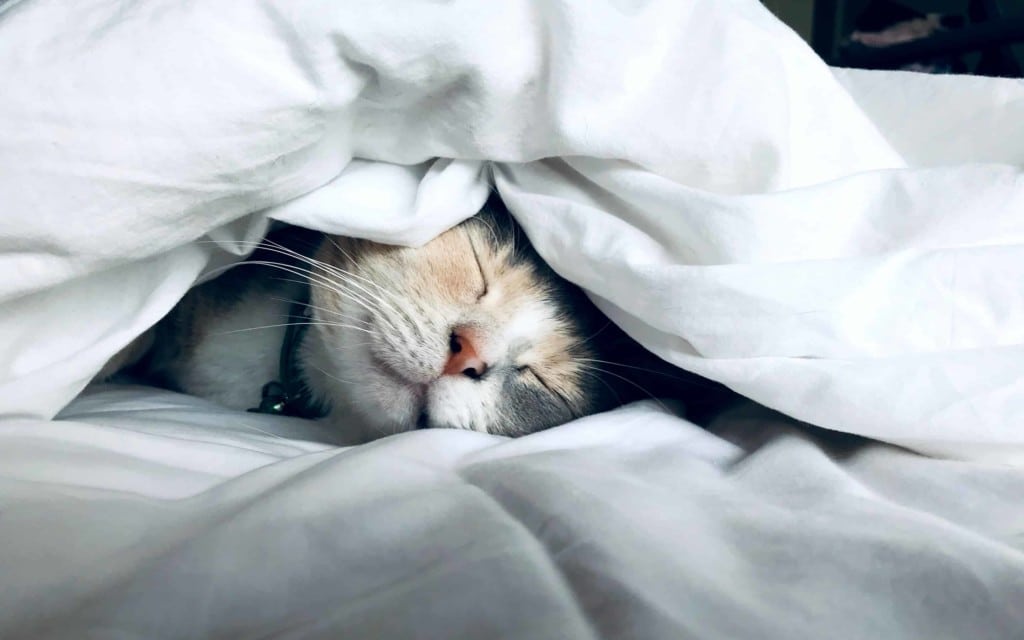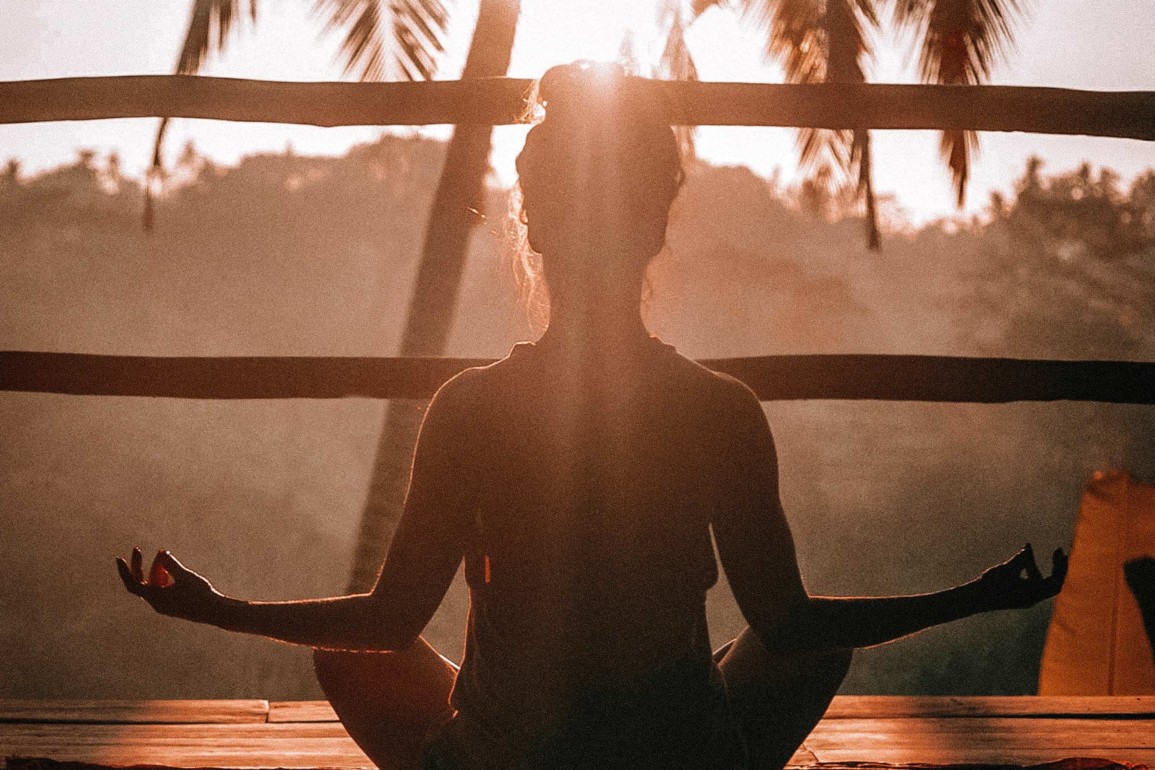Thinking of turning to meditation for sleep? You’re not alone. Try some mindful deep sleep meditation and get in zen.
There are few things more seductive than the warm embrace of your bed when you’re exhausted after a long day at work. Here at Siestio, we worship the wonders of amazing sleep every day.
The only problem?
Collapsing onto your mattress and actually getting to sleep are two very different things.
Insomnia has become such a significant problem around the world that it’s starting to feel like an epidemic. Cities across the globe are filled with bleary-eyed zombie-like people who just can’t get their forty winks — no matter how hard they try.
The good news?
If you’re worried that issues with sleep are holding you back (which they probably are), there could be a solution. Eggheads from all over the world have discovered that deep sleep meditation programmes — the ones you get from apps like Calm and Headspace – could change your life.
It turns out that mindful meditation for sleeping isn’t just the latest #Trending fad on Instagram. It’s a scientifically-proven way to make sure that you get those much-needed Zzz’s back into your daily routine.

Mainstream mindfulness: What is mindful deep sleep meditation?
Meditation isn’t exactly a new concept.
However, if it feels like you’re seeing more people preaching about the benefits of meditation before sleeping lately — you’re not wrong.
Over the last five years, the number of people practicing “mindfulness” has increased drastically according to studies from the CDC. It’s not just hippies and stressed-out millennials that are turning to meditation for sleeping either.
People from all walks of life are learning that it pays to be aware of the present moment — particularly if you want to get rid of those bags under your eyes.
So what is mindful deep sleep meditation exactly?
Well, it’s a process of focusing your thoughts and calming your mind so that you can enter a more relaxed and rested state.
Basically, instead of watching Netflix on your TV until you can’t keep your eyes open or lying in bed obsessing over everything that happened in the last 24 hours, you go through a guided process to unwind.
According to scientists, using meditation to fall asleep helps to:
- Lower the heart rate
- Slow your breathing
- Ease your mind
Sound promising? It should. After all, sleep isn’t just a great experience — it’s a necessary part of looking after your mental and physical health. Have you ever tried going to work after pulling an all-nighter, or looking after a screaming kid with only 2 hours of sleep? It’s not easy.
Just like food or water, your body needs sleep to function. 30% of people say that they have trouble falling and staying asleep each night. Not only that, but the money we spend on “sleep aids” to knock us out is set to reach a value of $79.7 billion by the end of 2019.
It’s about time we did something differently…

Let’s get scientific: Using mindful meditation to fall asleep
Here’s the thing.
When you don’t sleep properly at night, you don’t perform well during the day either.
Every time you spend the night staring at your smartphone, waiting for your alarm to go off, you’re taking points off your productivity levels for the next day. No
The importance of sleep on human health and performance is so significant that even Harvard has started to investigate the issue. According to a 2015 study, meditation for sleep really can improve your chances of a restful night.
The 6-week trial involved 49 middle-aged participants experiencing insomnia. One half of the group engaged in a mindfulness-awareness program which taught them how to meditate. The other half of the group used a sleep education program to learn more about improving their sleeping habits.
The outcome?
After 6 weeks, the group with the mindful deep sleep meditation strategy experienced less fatigue, insomnia, and depression than the other group!
Meditative sleep really does work—the science proves it—and we need it now more than ever.
Studies show that sleeping fewer than 7 hours per night increases your risk of heart disease, unhealthy eating habits, diabetes, and countless other chronic illnesses. On top of that, people who are sleep deprived make more errors at work and may drive more dangerously on the road.
On the other side of the coin, when we get better sleep, we experience lower levels of sleep, enhanced memory, and better functioning.
The trouble is, almost half of the world is sleep deprived. Even if we get to sleep, we can’t necessarily stay asleep. Not when there are countless distractions and stresses to keep us awake.
Could mindful deep sleep meditation be the solution?

How do meditation and sleep work together?
Grab your blanket and scoot closer — we’re going to get down into the nitty-gritty of how deep sleep meditation works.
Now, we all know that it’s normal to experience difficulty sleeping sometimes. Even if you don’t suffer from insomnia, you can still have a bad night’s sleep.
The problems come when you’re continually going through a cycle that looks something like this:
- Spend all night tossing and turning, trying to get to sleep
- Wake up feeling drained and exhausted
- Chug coffee and energy drinks to stay awake
Struggle sleeping again when you go back to bed
Look familiar?
Meditation for sleep breaks the cycle in a handful of interesting ways.
1. Sleep meditation boggles your brainwaves
Bear with us — this is a positive thing.
When you spend all night tossing and turning, the problem might come from something called “beta brain waves” – the activity in your mind that happens when you’re anxious, uneasy, or struggling with a decision.
When you’re trying to sleep, your beta brainwaves are the noisy dog next door, always barking at you to stay awake.
Meditation is how you tune out that noise with other healthy brainwaves like alpha, theta, and delta activity — the stuff that helps you relax. Think of meditation as your earplugs against boisterous beta brainwaves.

2. Sleep meditation reminds you of where you are
Where are you when you snuggle up into your covers each night? Physically, you might be sinking into a memory foam mattress with the smell of a freshly washed duvet swimming over you.
Mentally, on the other hand, you’re probably still in the office, thinking about the last conversation you had with your boss or planning what you’re going to do tomorrow.
Mindful deep sleep meditation focuses on bringing your mind into the here and now. When you engage in nighttime meditation for sleep, you pull your attention into the present so you can manage your mental and physical sensations, leading the way to better relaxation.
3. Sleep meditation gives you an extra dose of melatonin
You might not be a scientist, but you probably know that your body is packed full of chemicals and hormones, right?
Well, melatonin is the hormone that regulates your wakefulness and sleep levels. It’s supposed to peak right before bedtime to give you a lovely night of restful dreaming. However, our exposure to fast-paced lifestyles and gadgets might be sending our melatonin levels haywire.
So, what can we do about that? Well, according to the University of Massachusetts, people who use meditation before sleep have considerably higher levels of melatonin than people who just jump straight into bed. Coincidence? We think not.

Does mindful deep sleep meditation improve sleep quality?
Any extra sleep is great when you’re trudging through an exhausting lifestyle.
The fast-paced and busy lives that we lead means that we’re continually chugging coffee to get by and struggling with issues of insomnia, anxiety, and compromised health.
The promise that meditation before sleeping could help you to zonk out a little faster than usual, might be enough to convince you to start practicing straight away.
However, if you still need a little more convincing — stay tuned.
Mindful deep sleep meditation doesn’t just give you more sleep or help you to get to sleep faster. It can also improve the quality of sleep that you’re getting.
That means that if you use meditative sleep strategies each night and still only go to bed for the same number of hours that you usually would — you’re going to wake up feeling more rested and energetic.
So, wait, how does that work?
Well, according to studies, sleep meditation practices are effective at improving the “REM” portion of sleep — the part of our sleeping process where we dream, and our mind recovers from the stresses and strains of the day.
During REM sleep, your brain activity is very similar to the kind of mental state you’re in when you’re awake. In other words, your mind is packed full of theta and alpha waves, with a few high-frequency beta waves thrown in for good measure.
People often assume that they’re getting plenty of REM sleep each night, but the truth is that we usually only touch on this part of the sleep cycle.
REM is the fifth and final part of the sleep process — kind of like the resolution at the end of a movie. If the movie stops before the conclusion, then your brain is left unfilled.
When you don’t go through the complete REM cycle, you feel groggy and fatigued. However, neuroscientists from Massachusetts General Hospital found that meditation to help sleep can elevate the “pons” region of the brain that stimulates REM sleep.
According to the study, people who practice meditation to fall asleep have more enhanced REM cycles than their counterparts. Additionally, you might also end up with improved “neuro-plasticity” — which means that you get more vivid dreams.

Deep sleep meditation: Techniques to use before bed
Ready to start exploring the benefits of meditation for sleeping yourself?
We don’t blame you — it’s a great process.
We’ve even done a little research to find out what we need to do to get started.
The process you take will depend on your preferred styles of meditation, so let’s take a look at some of the most popular options.
Option 1: Mindfulness meditation
The best-known meditation method–and the kind you get help with from apps like Calm and Headspace–mindfulness meditation is all about tuning into yourself.
That might sound confusing — but it’s simple than it seems. All you need to do is listen to your experiences and your environment more carefully, paying attention to how you feel in the moment.
For instance, to practice mindful meditation before sleeping, try lying down on your bed in a comfortable position and focus on listening to your breathing. Count the seconds as you
As you focus on your breathing, let other distractions and thoughts pass you by – like sheep jumping over a fence, and feel yourself sinking into the mattress.
Gradually you’ll loose all of the stress and tension that you didn’t even know you had in various parts of your body. Check in now and again, noticing tensions in your muscles and letting them fade away naturally.
The better you get at mindfulness meditation for sleep, the easier it will be to become aware of what’s happening in and around your body. This makes it easier to let go of stress and agitation so that you can remain calm.

Option 2: Affirmation meditation
We love the feel-good nature of this kind of sleep meditation.
Although affirmation meditation is a lot like mindfulness meditation — it requires you to focus your attention elsewhere. Instead of concentrating on your breathing, you listen to the distractions and negative thoughts that come into your mind and replace them with positive affirmations instead.
Depending on where you go to find support for your affirmation meditation for sleep, you might find that certain apps and websites suggest phrases like “My mind is at ease.”
You can also get really poetic with it and try something like “My body is as calm as the ocean.” It doesn’t matter what you say to yourself.
All that matters is that you feel comfortable, happy, and content. Some psychologists believe that the thoughts that go through our minds as we fall asleep are more likely to anchor into our subconscious.
So, what does that mean for you? Well, if you use meditation for sleep to place more positive thoughts into your mind while you’re sleeping, you might wake up feeling more confident and uplifted too!
Option 3: Guided meditation for sleep
If you’re new to using meditation to fall asleep, then the best option might be to have someone else guide you through the process.
We’re not recommending that you invite someone into your bedroom each night to talk you through your sleep cycle — unless you’re cool with that.
These days, there are plenty of apps out there that can help you with
With guided sleep meditation, an instructor asks you (often in a very soothing voice), to relax your toes, inhale deeply, consider your thoughts, or even visualise relaxing images. There are lots of different options to choose from depending on what works for you.
Instead of worrying about what’s going to happen tomorrow or thinking back over what you’ve done in the day, guided meditation asks you to picture something relaxing so you can adjust your thoughts and feelings.
It’s hard to feel anxious when you’re imagining yourself sprawled on a sandy beach, soaking in the warmth of the sun and the refreshing scent of the sea air.

Best time to meditate: Meditation before sleeping
While nighttime meditation for sleep might not be the right solution for everyone, here at Siestio, we advocate for evening meditation. Feel free to through one in early in the day as well.
With deep sleep meditation, you can learn how to control your brainwaves more effectively, leading to better relaxation and more restful sleep. What’s more, when you get a better night of sleep, you also wake up feeling more confident and ready to tackle the day ahead.
Let’s face it; it’s much easier to handle your annoying boss or traffic on the way to work when you’re still glowing from a night of beautiful dreams.
Sometimes, it takes a bit of time to find the sleep meditation strategy that’s most effective for you. However, once you track down the right solution, the benefits are well worth the effort. For instance, just some of the advantages of meditation before sleeping include:
Reduced stress
Sleep meditation teaches you how to be more aware of your feelings so that you can replace bad emotions with better ones.
The more comfortable you get with your meditation before sleep, the easier it will be to pull the lessons you learn into your everyday life too.
For instance, the next time you feel stressed out by a pile of paperwork, you can remind yourself to replace that negative feeling with a positive concept instead, like “At least I’ve got a great weekend to look forward to.”
More confidence
Meditation for sleep also helps you to tap into the power of your subconscious mind — kind of like therapy or hypnosis.
Once you learn how to travel into the depths of your conscious, you can implant intentions and goals there that help you to pursue your dreams. You can even imagine yourself accomplishing your goals, which could mean that you’re more likely to take risks in real life.
Higher productivity
When you get the right amount of sleep, you have everything you need to be more productive and successful in life. Trying to be your best without a good night of sleep is like trying to drive a car without any wheels – you can try, but it’s not going to go very well.
Studies show that meditation can pave the way for better sleep so that you can end up with better cognitive functioning and performance the next day.
On top of that, there are plenty of ways that a great night of sleep can also improve your physical and mental health. Studies have shown time and time again that sleep can tackle everything from chronic illness to depression and anxiety.
It turns out that you don’t necessarily need an expensive multi-vitamin to be a healthier you — all you need is meditation and a

Could meditation boost your beauty sleep?
When you’ve spent months trying to figure out how you’re going to improve your sleeping pattern, something as simple as meditation is easy to write off. We tell ourselves that we need something a lot more significant than some essential mindfulness and guided relaxation techniques.
However, the studies show that meditation for sleep is a lot more effective than it seems.
Using nighttime meditation for sleep could be better for you than any sleeping pill your doctor can prescribe. Plus, there are no nasty side-effects to worry about either. Instead, you wake up happy, well-rested, and raring to go.
The good news? Even if you’ve never tried meditation before, it’s easy to get started. There are plenty of meditation for sleeping apps and programs out there that can walk you through the process.
Don’t you think it’s about time you gave meditation a try?
Siestio. Sleep matters.
General advice disclaimer
This article contains general tips and advice. However, no diet or exercise program should be started without consulting your physician or other industry professional first. For more information read our full disclaimer here.







